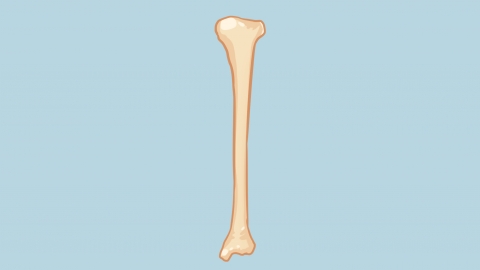Which department should I visit for femoral bone marrow edema?
Femoral bone marrow edema is often associated with trauma, inflammation, degeneration, and other factors. Medical consultation should be based on the underlying cause and symptoms, and appropriate departments include orthopedics, sports medicine, joint surgery, trauma orthopedics, and rheumatology/immunology. Specific details are as follows:

1. Orthopedics: If the cause of edema is unclear or accompanied by hip pain and limited mobility, general orthopedics is the first choice. This department can use X-ray and MRI to preliminarily determine the cause, such as ruling out bone contusion or osteoarthritis, and can prescribe anti-inflammatory and analgesic medications, guide rehabilitation exercises, and provide basic diagnostic and treatment support.
2. Sports Medicine: If the edema is related to sports injuries—such as hip discomfort after running or jumping—or if tendon injury or synovitis is suspected—sports medicine is recommended. This specialty excels in diagnosing and treating musculoskeletal conditions related to physical activity, assessing the condition, and developing personalized rehabilitation plans to restore function and reduce recurrence.
3. Joint Surgery: If edema is accompanied by hip joint pain and restricted movement, and early-stage femoral head necrosis or femoroacetabular impingement is suspected, joint surgery is recommended. This department specializes in joint disorders, performs detailed evaluations to identify structural joint abnormalities, and may offer targeted treatments such as arthroscopic minimally invasive surgery when necessary.
4. Trauma Orthopedics: If the edema results from a clear traumatic event—such as a fall or impact injuring the femur—even in the absence of obvious fracture, trauma orthopedics is appropriate. This department specializes in managing bone injuries due to trauma, assesses the extent of damage via imaging, and provides immobilization, protective measures, and physical therapy to promote resolution of edema and tissue healing.
5. Rheumatology and Immunology: If edema is accompanied by multi-joint pain and stiffness, or if there is a history of rheumatoid arthritis or ankylosing spondylitis, rheumatology and immunology should be consulted. This department uses blood tests to evaluate rheumatic and immune markers, determines whether the edema is caused by immune-mediated inflammation, and provides anti-inflammatory and immunomodulatory treatments.
In daily life, patients should avoid excessive loading on the femur, minimize prolonged standing or intense physical activity, perform gentle hip stretching exercises as appropriate, maintain warmth, and avoid cold exposure that may worsen symptoms.




